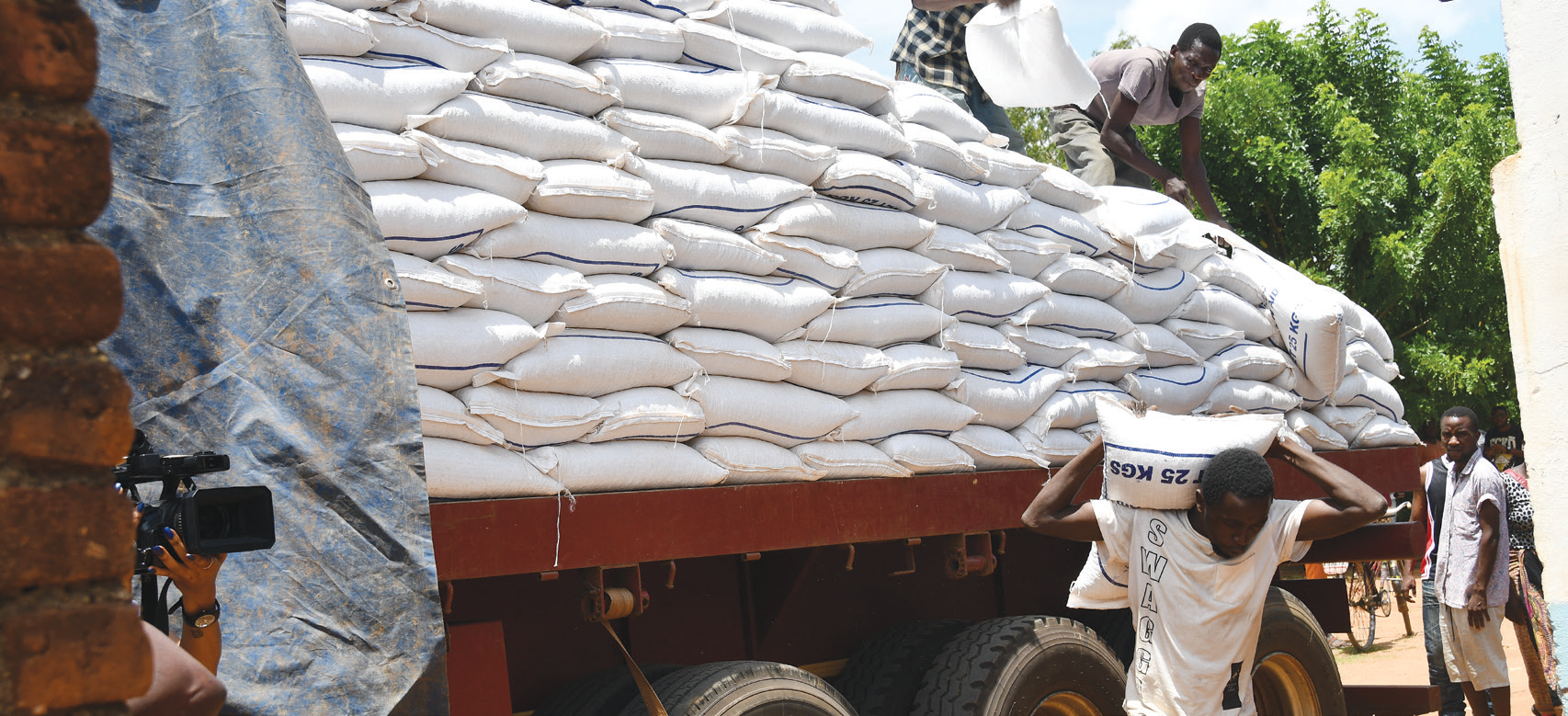Malawi gets K15bn EU boost
The European Union (EU) has approved 15 million euro (about K15 billion) assistance to Malawi to help narrow the food security gap for 3.8 million people between November this year and March 2023.
The package, announced in a statement on Saturday, is part of K600 billion the European Development Fund has extended to cushion vulnerable people from a potential food crisis, mainly resulting from the impact of the Russia and Ukraine war.

Under the financing arrangement, beneficiary countries, including Malawi, are expected to receive varying amounts.
Reads the EU statement in part: “This will help partner countries and vulnerable people to cope with the unjust consequences of Russia’s war of aggression against Ukraine, notably the current food security crisis and related economic shock.”
The EU’s gesture has come at a time when Malawian taxpayers are expected to foot a whopping K76 billion bill to feed the 3.8 million food-insecure people.
Department of Disaster Management Affairs (Dodma) commissioner Charles Kalemba said at a press briefing in Lilongwe on September 15 2022 that the funds will be needed for the implementation of the 2022-23 Lean Season Food Insecurity Programme.
Dodma said the bill represented 70 percent of the investment Malawi Government pumped into the 2021-22 Affordable Inputs Programme (AIP), the Tonse Alliance’s flagship programme aimed at achieving food security by providing vulnerable households with subsidised farm inputs.
Both Kalemba and Dodma spokesperson Chipiliro Khamula could not be reached when The Nation sought their reaction to the EU gesture.
In the EU statement, c o m m i s s i o n e r f o r international partnerships, J u t t a U r p i l a i n e n , emphasised that the EU’s swift and comprehensive response to the food insecurity demonstrated solidarity towards its partners.
Reads the statement: “ I t hel p s shoul d e r the consequences felt worldwide of Russia’s war of aggression against Ukraine. In the short-term, we are helping families with food and nutrition assistance and helping countries to buy the food they need.”
T h e s t a t e m e n t also quoted the EU commissioner for crisis management Janez Lenarcic as having said that global food insecurity is a thing of utmost concern.
He said: “Data shows that tens of millions more people are facing food shortages compared to an already difficult year last year.
“The Russian invasion of Ukraine dramatically exacerbated the situation for the most vulnerable in the world who are already facing the consequences of conflicts, the effects of climate change and the Covid-19 pandemic.”
According to Lenarcic, the EU remained committed to supporting the most vulnerable people and that it is further advocating for sustainable development-oriented solutions to ending hunger.
A published mid-year update of the Global Report on Food Crises estimates that up to 205 million people currently face high levels of acute food insecurity in 45 countries.
At least 3.8 million people or 20 percent of the population in Malawi is expected to face high levels of acute food insecurity, the highest figure in the last five years, according to the latest Malawi Vulnerability Assessment Committee (Mvac) report.
The report shows that the hunger situation will extend to 21 districts between October to March next year.
The report attributes this likely deterioration to the lean period, the continued impact of the war in Ukraine on food prices and the devaluation of the local currency by 25 percent.
Reads the Mvac report in part: “The fertiliser uptake for most of the farming communities was lower than all previous years. The war in Ukraine has resulted in the recent months to a devaluation of the currency by 25 percent.
The hardest hit is projected to be the Southern Region where all districts have been affected with Nsanje, Chikwawa and Balaka being the worst hit as has been the trend in the past five years.
Out of the total figure of those projected to face acute food insecurity, 3.2 million people live in rural areas while 623 000 reside in the country’s four cities of Blantyre, Zomba, Lilongwe and Mzuzu.
At 3.8 million, this is the highest number of acutely food-insecure population in the last five years compared to 3.3 million in the 2018/2019 consumption year and 1.49 million in the 2021/22 consumption year. The projected acute food insecure populations were the lowest in 2017/18 and 2019/20 consumption years, having registered 1 042 412 and 1 062 663 people, respectively.





